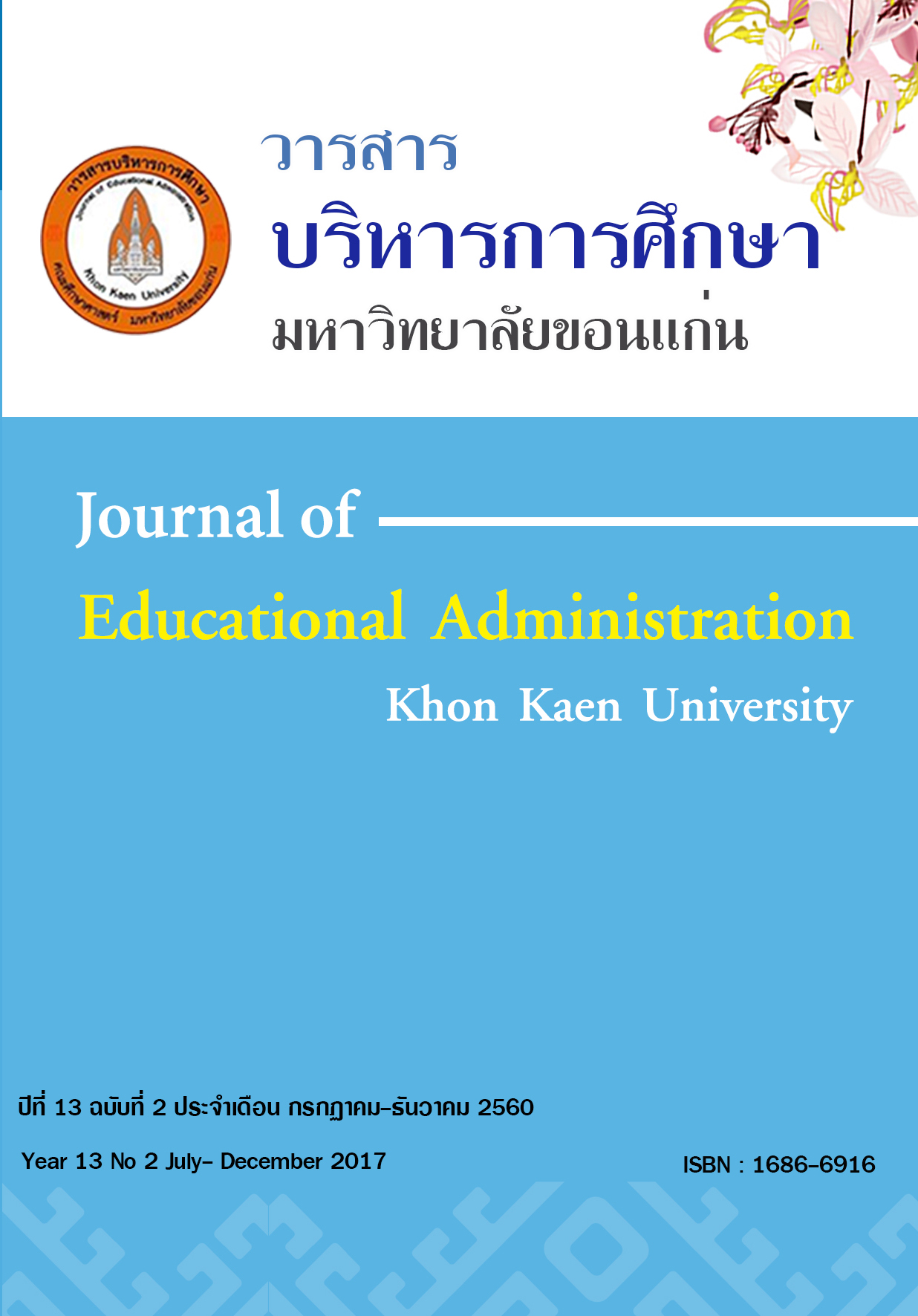THE STRATEGIC FOR THE EFFECTIVENESS OF KALASIN PRIMARY EDUCATION OFFICE SERVICE AREA 3
Main Article Content
Abstract
The purposes of this research were to 1) examine the current conditions, and guidelines for developing effective organization 2) propose strategies for developing effective organization, and 3) to verify and refine the proposed strategies. This Research and Development was divided into three phases: Phase I was related to exploring the current conditions, and guidelines for developing effective organization through document inquiries, a survey, multi-case studies, in-depth interview; Phase II was related to drafting the proposed strategies through the training workshop; and Phase III involved the verification and refinement. The appropriateness, consistency, feasibility, and utility of the proposed strategies were done through the public hearing from experts and relevant stakeholders.
The findings were as follows:
1. The performance conditions of the Office of Kalasin Primary Educational Service area 3, as a whole, were at a medium
2. The proposed strategies for developing effective organization of the Office of Kalasin Primary Educational Service 3 involved eight aspects . 1) Establishment of policies, development planning, and basic education standards in accordance. 2) Analyses of block grant allocation for academic institutions and organizations in educational service areas. 3) Coordination, enhancement, support, and development of co-curriculum with academic institutions in educational services areas, and conducting research. 4) Controlling, monitoring, and evaluation of basic education and educational service areas involving two approaches, two procedures, and nine indicators, 5) Coordination of resources including personnel resources in order to enhance and support education management and development in educational areas. The strategies comprised one approach, one procedure, and three indicators; 6) Education quality assurance system and evaluation for academic institutions in the educational service areas involving two approaches, nine procedures, and 24 indicators. 7) Coordination, enhancement, and support of education for private academic institution, local administration organization. 8) Coordination, enhancement, and operation of sub-committee, education committee, and general public performance with organization or sectors both public. The strategies comprised one approach, two procedures, and six indicators.
3. The proposed strategies were refined and confirmed for appropriateness, consistency, and utility at a high level in all aspects.


